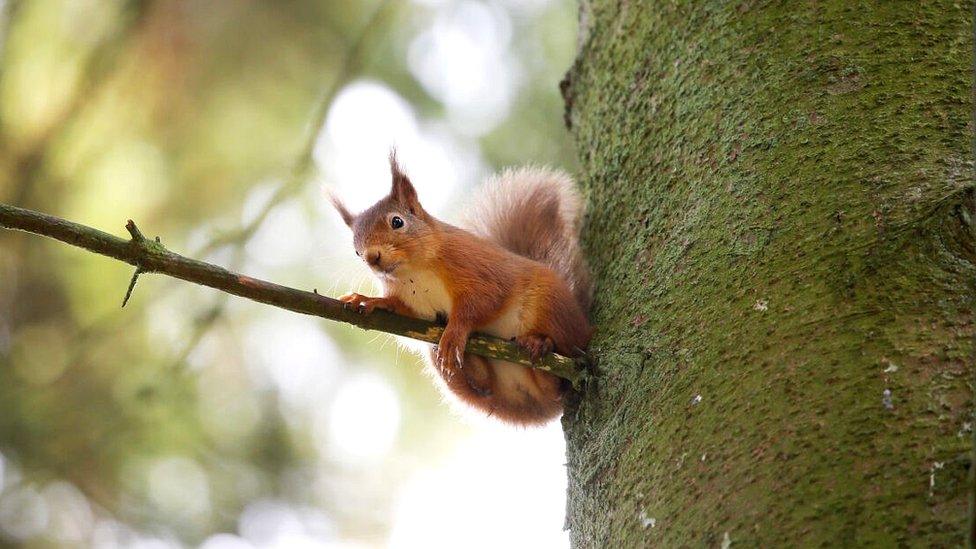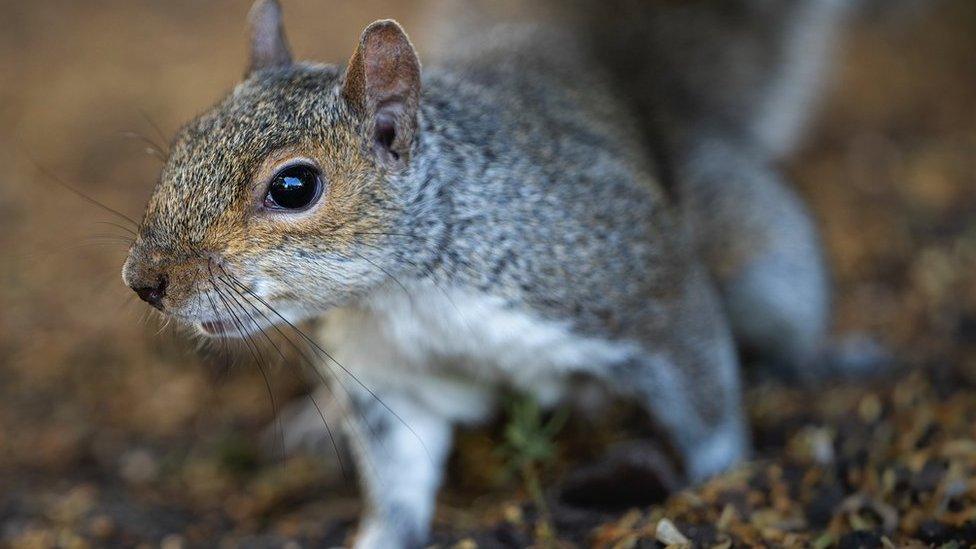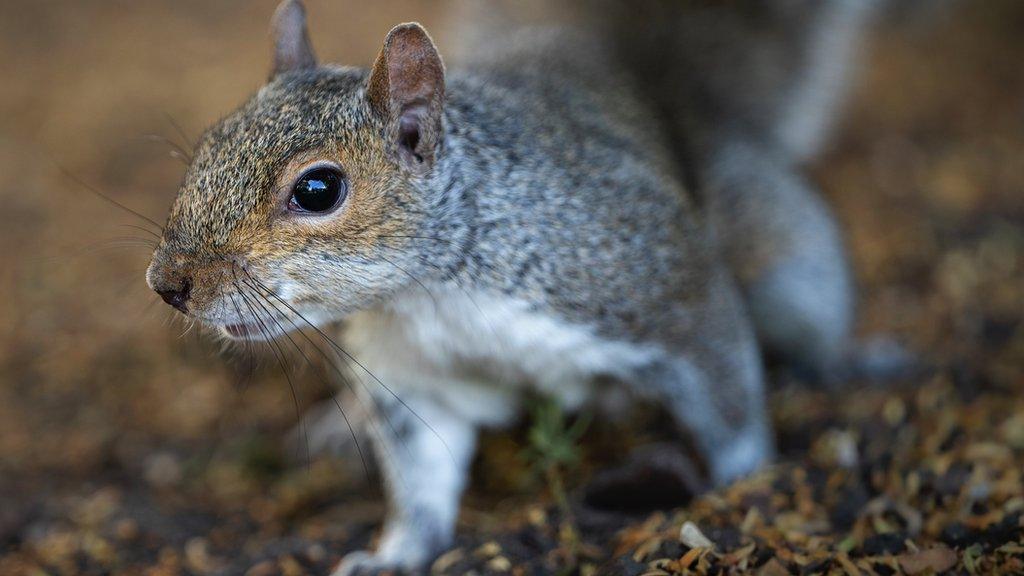Disease that kills Britain's native red squirrel moves north
- Published

Squirrelpox is deadly for red squirrels
A disease that kills Britain's native red squirrel has moved north of Scotland's central belt for the first time.
Scientists have confirmed the death of a red squirrel from the squirrelpox virus in Dunfermline in Fife - an area previously unaffected by the disease.
Experts said it was a "worrying development" and a "major threat" to Scotland's northerly red squirrels.
The first Squirrelpox outbreak in Scotland was in 2007 near Lockerbie.
Since then the disease has appeared in various red squirrel populations across the south of Scotland.
However, this is the first time a case has been confirmed north of Scotland's central belt.
Squirrelpox is a virus carried by grey squirrels, which does not affect them, but can be rapidly lethal when passed to the UK's native red squirrels.
Grey squirrels were introduced to the UK from North America by the Victorians and have since displaced red squirrels in most of England and Wales, with more than 75% of the UK's total remaining population now in Scotland.
A walker found the dead red squirrel with ulcers and scabs around its eyes and mouth in woodland north of Dunfermline in March.
The University of Edinburgh's Royal (Dick) School of Veterinary Studies has now confirmed it had squirrelpox following a post-mortem examination.
The Scottish Wildlife Trust said the news could have serious consequences for the area's red squirrel population.
Liam Wilson, of the Royal (Dick) School of Veterinary Studies in Edinburgh, said: "This is a worrying development for red squirrels in Scotland, as this case north of the central belt may be the prelude to squirrelpox expansion both locally and further northward, although more investigative work is required to fully assess this risk.

The grey squirrel carries squirrelpox but is unaffected by it
"This case also highlights the key role members of the public have in wildlife conservation, as this case was detected from the submission of a dead red squirrel by a member of the public.
"If any members of the public come across further dead red squirrels in and around Dunfermline, these can be posted to us for examination using detailed guidelines."
Squirrelpox symptoms include ulcers, scabs and weeping lesions on the face, paws and genitalia, all of which can prevent red squirrels from eating, drinking or moving.
It is usually fatal within two weeks and an outbreak can cause local populations to drop dramatically.
Nicole Still, the Scottish Wildlife Trust's saving Scotland's red squirrels programme manager, said: "We are extremely concerned about this latest news.
"We are asking the local community in Dunfermline to take immediate action and protect red squirrels by taking in all garden and woodland wildlife feeders for the next month, as these can contribute to the spread of the disease from greys to reds and between reds once infected.
"We are also asking for everybody to keep a close eye out for, and take photos of, any sick-looking red squirrels and email these into us, as well as report all sightings of both species to our website to inform local efforts."
Related topics
- Published11 July 2022
